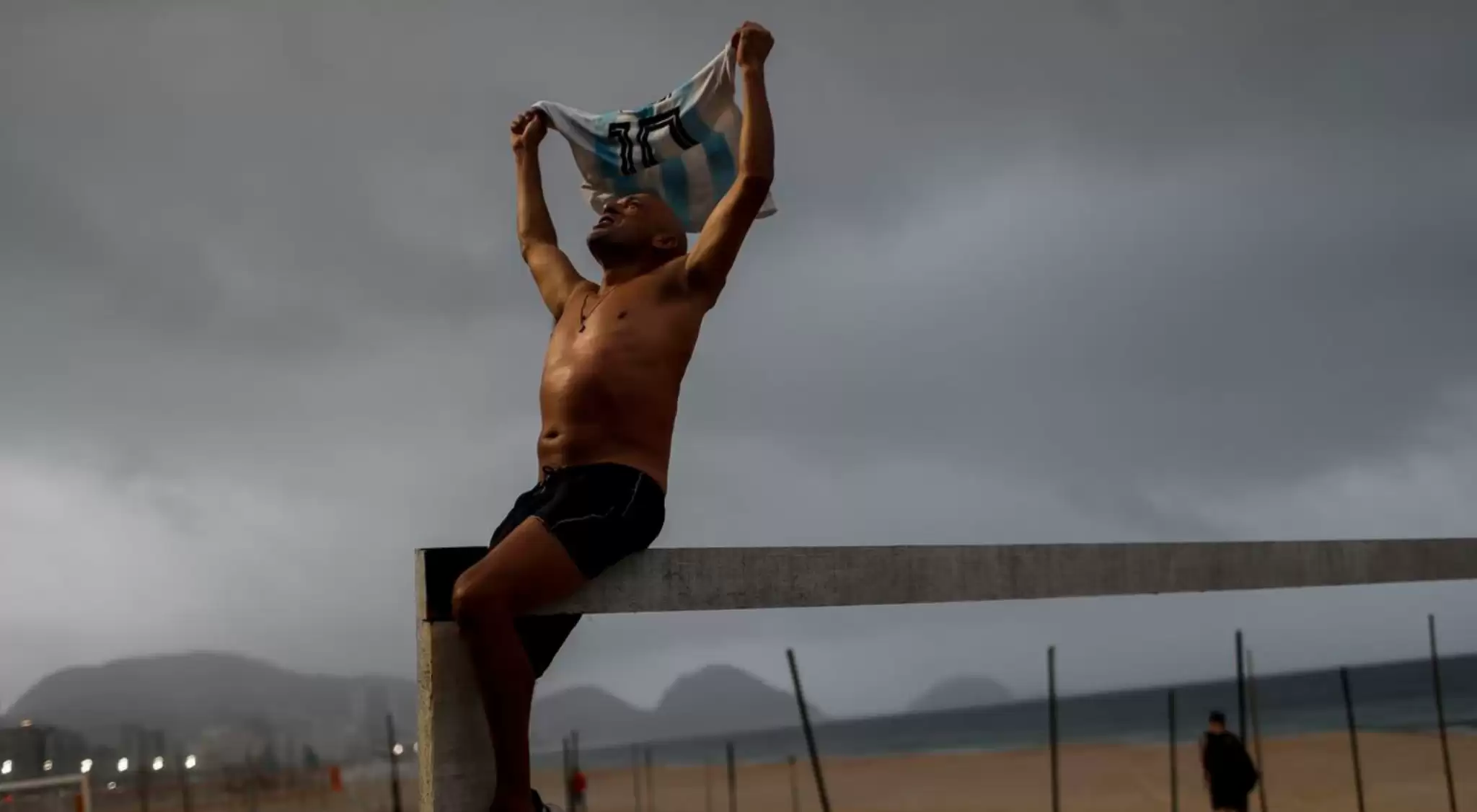After the fourth penalty kick, taken by Montiel in the World Cup final – considered by many as the best final in the history of the World Cup – we saw Lionel Messi kneel down in the middle of the field and celebrate with several of his teammates.
Everything, or almost everything, has been written and said about Messi. There have also been countless reports, documentaries, and series that tell the details of his life on and off the field. One of the most recurring themes when telling his story is the medical diagnosis of growth hormone deficiency detected at the age of eight. The impossibility of covering such treatment was the main reason that led him to migrate with his father to Barcelona. A year later, thousands of Argentines would also migrate as a result of the economic and political crisis the country was going through.
Since he was 13 years old he has lived in Spain, the country that also granted him nationality, but he always refused to play for that national team. He made his debut as a professional footballer at the age of 17, after training at the Barcelona Youth Academy, and since then, he has won, at least once, all the tournaments he has played in. This has placed him at the top of the world’s best players alongside Maradona and Pelé.
Although winning the world championship has historically provoked emotional celebrations, the images that began to circulate from Buenos Aires upon the arrival of the national team were impressive for their magnitude and emotionality. Several media spoke of 5 million people from all social classes who came out to celebrate in the capital, without adding the crowds that took to the streets in the rest of the provinces. The arrival of Messi, the cup, and “the Scaloneta” (Argentina’s team nickname) was a party, a massive and popular carnival, with an official holiday included. But there was also an overdose of banal nationalism or patriotism without the presence of any politician. It was a sort of depoliticization of the triumph at the request of the players themselves, who did not even take a photo with Mauricio Macri (who was in Qatar) or with President Alberto Fernández (who was waiting at the Casa Rosada).
The mobilization of Argentines was one of the most massive in history. However, for the first time, it was observed that the celebrations went beyond the national borders (obviously without taking into account the Argentine migrants) and were de-territorialized towards different regions: not only in Latin America (where many people always identify with the teams that represent what we call Patria Grande) but also in Europe and Asia. Celebrations stood out in Bangladesh, whose inhabitants have also identified with the Argentine national team since the time of Maradona, who, in the 1986 World Cup, defeated the England team that had conquered them in the past.
At the beginning of this century, some authors such as Sergio Villena pointed out that globalization processes promote a reconfiguration of the relations between identities and territorialities that are manifested in the conformation of new sub, trans and supra-state identities. Messi’s Barcelona is an example of what the author suggests, being a club managed as a transnational company that uses the image of elite athletes to boost its sales.
All this has made soccer a spectacle, a transnational and global merchandise that has allowed a good part of the planet to consume the product called Messi, even more so in the context of the World Cup of national teams.
The World Cup finals are one of the most watched sporting events in the world. But unlike in the past where TV, increasingly in its ‘pay-per-view’ mode, and specifically sports journalists were responsible for reporting soccer (having often national narrations), now soccer is not only verbalized but also is viral thanks to the role of social networks. This caused the final between Argentina and France to reach a record number of searches on Google.
The centrality of the 10 was not only key to winning the world championship by scoring 7 goals and making three assists, but also to produce a sort of global Argentinization or, to be more specific, a ‘Messification’. This process cannot be understood without the rise of social networks, which have accompanied the Star throughout his career. In fact, the same year that Messi made his debut (in 2004), Mark Zuckerberg launched Facebook and from then on, other networks such as YouTube, Twitter, Instagram, and TikTok emerged.
Through the networks, we have been able to see his 793 goals and 41 titles. Leo alone on Instagram has 410 million followers and the publication of his photos after winning the cup broke the record for most ‘likes’ in the history of this social network, reaching more than 73 million. Messi is also in the top 5 with more followers and records an average income per post of 1.17 million dollars.
A not-minor fact is that Messi, off the field, has been a politically correct guy (not a kid). Unlike Maradona, Messi projects the image of a simple person that we all push for him to lift the World Cup with Argentina before the end of his career.
Messi has been so politically correct throughout his career that he has “meticulously avoided any kind of political statement.” This has also served his acceptance as a global transnational commodity. The only phrase contrary to the above is the one he recently uttered at the end of the match against Holland in the quarterfinals: “What are you looking at, fool? Go away”.
However, it must be said clearly: many of the criticisms came from his own country rather than from abroad. As Pablo Alabarces points out, Messi was only pardoned in 2021, but before that, he was accused of playing only for money, not with passion, reproaching him for each one of the national team defeats.
But since this is only soccer, and Leo has won three cups with the Argentine national team in the last two years, for all of us who love good soccer and who identify with Argentina, or with Messi, or with The Scaloneta, on December 18, we celebrated, here, there or thereabouts…
*Translated from Spanish by Janaína Ruviaro da Silva













